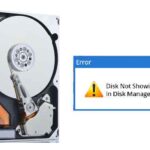You’re exposing your company to a cyber assault and your clients’ data to theft if you don’t take adequate precautions. Allowing sensitive information such as credit card information, addresses, and emails to fall into the wrong hands can result in a loss of client confidence in your company. According to research, 74% of customers will switch to the competition in the event of a security incident.
Small firms must prioritize cyber security as well as engage in the required technology, personnel, funds, and legal expertise. On a regular schedule, it’s critical to evaluate and tighten cyber security measures.
Backup Your Data
If you keep all of your data with one location, you risk losing something if that location fails or is compromised. You have a backup in case your data is lost. A backup is a digital replica of the original data that can restore work if something goes wrong. Most contemporary software packages can automatically backup any data you tell them to. Still, you may also copy documents one by one if you’re so inclined and perhaps only would like to back up a little amount of data.
It’s critical to keep the data backup on even a flash drive or an external hard drive when you’ve completed the backup. Save your backup separate from the original copy on the very same storage device; otherwise, you’ll be defeating the backup’s objective! If you have everything stored on another disc, you aren’t entirely out of luck if your hardware fails and all of your data is lost.
Keep updated
The most fundamental thing you can do to reduce the danger of an attack is to make sure your software is up to date. This covers all of the programs you use on your desktop PCs, laptops, smart applications, and the operating systems they all run.
Although this appears to be a straightforward process, things could get complicated if you have custom applications and a large digital environment. On the one hand, bespoke software necessitates the attention of a dedicated development team.
That team should offer QA technology solutions because you’ll need them not only to add new functionality but also to fix any flaws that were overlooked or that surfaced during the development of an upgrade.
Passwords
Strong passwords are an essential aspect of preventing cyber-attacks and business disruptions. Effective security begins with strong passwords that include a combination of alphabetical, numerical, and special characters, even though this is oft-repeated advice that busy computer users often neglect. Client screen timeouts should also be considered.
It’s best to change your passwords regularly rather than use the same one for many accounts. Names, obvious terms, and people’s dates of birth should not be used in passwords. Passwords written on comment notes or whiteboards – especially near windows – are like giving hackers gifts.
Train your employees
People are frequently the weakest link in any security system; thus, training and development can help you to increase security. Establish a solid policy for your personnel as well as a training program. Basic password management, the need to function on a password-protected Wi-Fi network, never giving information to strangers, and avoiding clicking on links or documents from anonymous users are all topics to consider addressing.
Keeping your staff aware of possible threats and providing an opportunity to practice spotting them is yet another pillar of training. Finally, assign an IT contact or a supervisor to whom employees can direct security questions to keep your data safe.
Working from home helps your company to continue operating regardless of the outcome. On the other hand, remote work can only be productive if smart small company cyber security best practices are followed. If you need to buy secure software or gear or IT help, a small company loan can help you get the tools you would need to protect your company swiftly.
Antivirus Software
First and foremost, antivirus software should be installed in your organization. Do some homework or ask an expert for guidance to pick the ideal one for your needs and requirements. Organized auto-updates and double-check that they’re working once the system is developed. If you don’t keep your antivirus software up to date, it will become ineffective, leaving you vulnerable to attacks. You can also talk to the experts from RemoteDBA.com in more detail.
Another of the advantages of managed network solutions for companies is that antivirus updates are handled by someone else. This ensures your firewall will be more secure, and your IT team will be able to focus on other vital activities, such as optimizing your business requirements.
Antivirus software is required to safeguard all of your computers against malware, ransomware, cyberattacks, and phishing schemes. Make sure the program not only protects you but it also has technologies to assist you to clean your systems and restore them to their pre-infected condition.
Strong authentication
Ensure that employees and other networking devices use appropriate user IDs and passwords for their laptops, portable devices, and online accounts. Consider needing more information than just a password to access your company’s network, as well as other security precautions like two-factor authentication.
You can’t take the cyber security of your business lightly. One mistake can cost you dearly, both in terms of money and reputation. Fortunately, there are things you can do right now to improve the way you protect your systems. From working with a QA development firm to patch up your custom-made applications to adhering to new security practices for all your staff, you can improve your defenses.
Facebook data leak
The contact information and private information of more than a half-billion people were exposed in recent years due to a Facebook Inc. hack in 2019. While the evidence comes through a Facebook platform vulnerability that the company claims to have already been repaired, security experts think criminals might utilize it for evil purposes such as spam email and robocalling.
SSL Protocol for your Business Website Protection
SSL certificate is the best way to improve website security. It not only verifies registered business identity but also, offers robust encryption. Different types of SSL certificates are there to fulfil website’s security demand at really discounted price. If your website has subdomains and want to add in future then, a Cheap Wildcard SSL is necessary at this level. All subdomains with first level that point to a main domain will be covered under this certificate. Your website will enjoy high level of security protection. A site developer or owner should assess the site’s requirement and choose the best SSL. When your customers observe that the website is legit and secure, they would like to interact with the site in a positive way.
All of the suggestions above might feel basic for security experts, but that’s the whole point. These are the starting blocks for building better cyber security measures for your company. Once you’ve covered these points, you should meet with an IT team to devise more sophisticated ways to increase your protection.


















